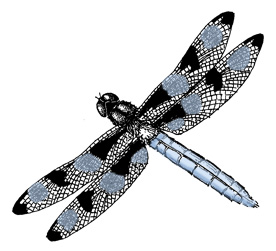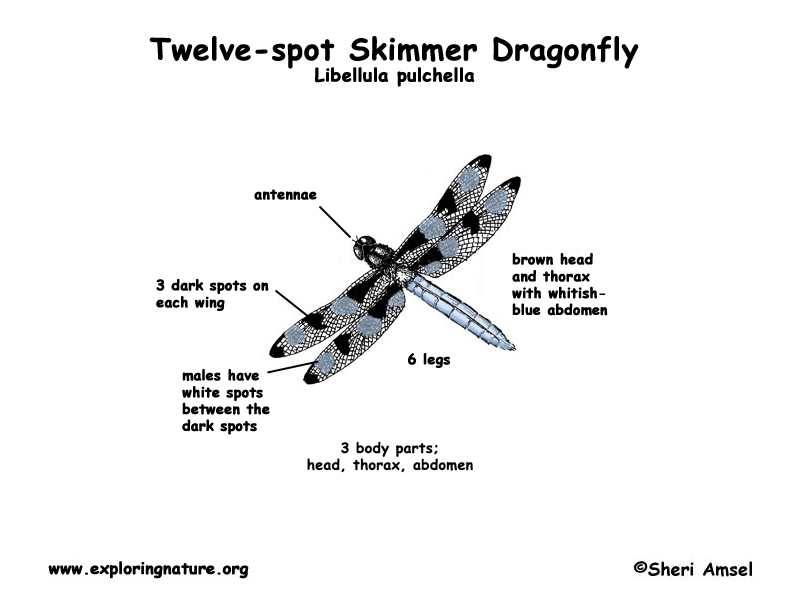

They are found through most of the U.S.
They live near wet areas, along streams, ponds and marshes.
They have large wings and are strong fliers. The buzzing sound of their flight can be heard as they go by. They have a brown head and thorax with whitish-blue abdomen. There are 3 dark spots on each wing. The males have white spots between the dark spots. They are 1 - 1.5 inches long.
When they rest on plants or rocks, they sit with their wings spread.
They eat flying insects including mosquitoes, flies, butterflies, moths, mayflies, and even other dragonflies!
Females lay their eggs on plants stems near the water line.
Kingdom: Animalia
Phylum: Arthropoda
Subphylum: Hexapoda
Class: Insecta
Order: Odonata
Suborder: Anisoptera
Family: Libellulidae
Genus: Libellula
Species: L. pulchella
When you research information you must cite the reference. Citing for websites is different from citing from books, magazines and periodicals. The style of citing shown here is from the MLA Style Citations (Modern Language Association).
When citing a WEBSITE the general format is as follows.
Author Last Name, First Name(s). "Title: Subtitle of Part of Web Page, if appropriate." Title: Subtitle: Section of Page if appropriate. Sponsoring/Publishing Agency, If Given. Additional significant descriptive information. Date of Electronic Publication or other Date, such as Last Updated. Day Month Year of access < URL >.
Amsel, Sheri. "Dragonfly (Twelve-spot Skimmer)" Exploring Nature Educational Resource ©2005-2024. December 13, 2024
< http://www.exploringnature.org/db/view/Dragonfly-Twelve-spot-Skimmer >

